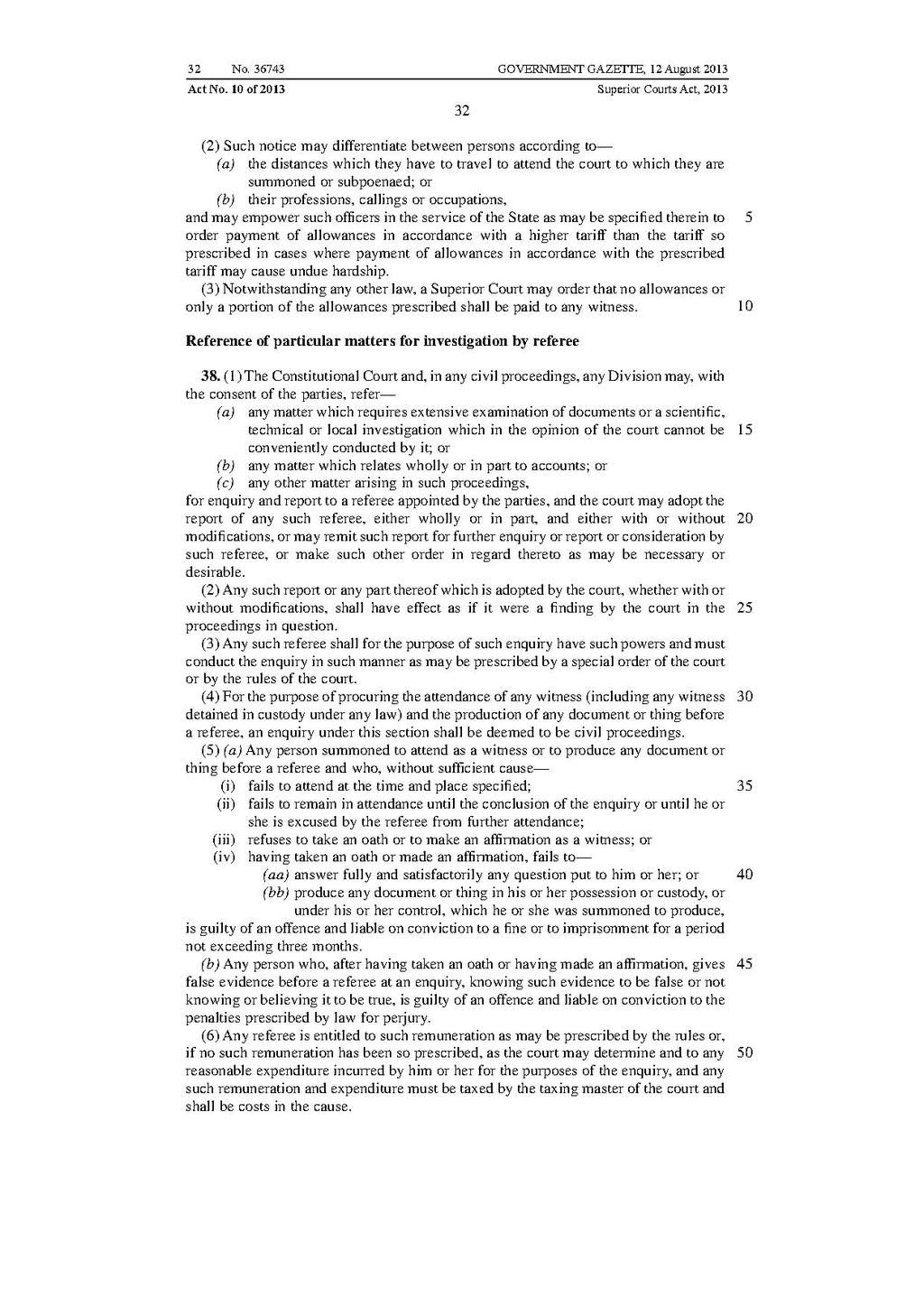32
(2) Such notice may differentiate between persons according to—
and may empower such officers in the service of the State as may be specified therein to order payment of allowances in accordance with a higher tariff than the tariff so prescribed in cases where payment of allowances in accordance with the prescribed tariff may cause undue hardship.
(3) Notwithstanding any other law, a Superior Court may order that no allowances or only a portion of the allowances prescribed shall be paid to any witness.
Reference of particular matters for investigation by referee
38. (1) The Constitutional Court and, in any civil proceedings, any Division may, with the consent of the parties, refer—
for enquiry and report to a referee appointed by the parties, and the court may adopt the report of any such referee, either wholly or in part, and either with or without modifications, or may remit such report for further enquiry or report or consideration by such referee, or make such other order in regard thereto as may be necessary or desirable.
(2) Any such report or any part thereof which is adopted by the court, whether with or without modifications, shall have effect as if it were a finding by the court in the proceedings in question.
(3) Any such referee shall for the purpose of such enquiry have such powers and must conduct the enquiry in such manner as may be prescribed by a special order of the court or by the rules of the court.
(4) For the purpose of procuring the attendance of any witness (including any witness detained in custody under any law) and the production of any document or thing before a referee, an enquiry under this section shall be deemed to be civil proceedings.
(5) (a) Any person summoned to attend as a witness or to produce any document or thing before a referee and who, without sufficient cause—
is guilty of an offence and liable on conviction to a fine or to imprisonment for a period not exceeding three months.
(b) Any person who, after having taken an oath or having made an affirmation, gives false evidence before a referee at an enquiry, knowing such evidence to be false or not knowing or believing it to be true, is guilty of an offence and liable on conviction to the penalties prescribed by law for perjury.
(6) Any referee is entitled to such remuneration as may be prescribed by the rules or, if no such remuneration has been so prescribed, as the court may determine and to any reasonable expenditure incurred by him or her for the purposes of the enquiry, and any such remuneration and expenditure must be taxed by the taxing master of the court and shall be costs in the cause.
